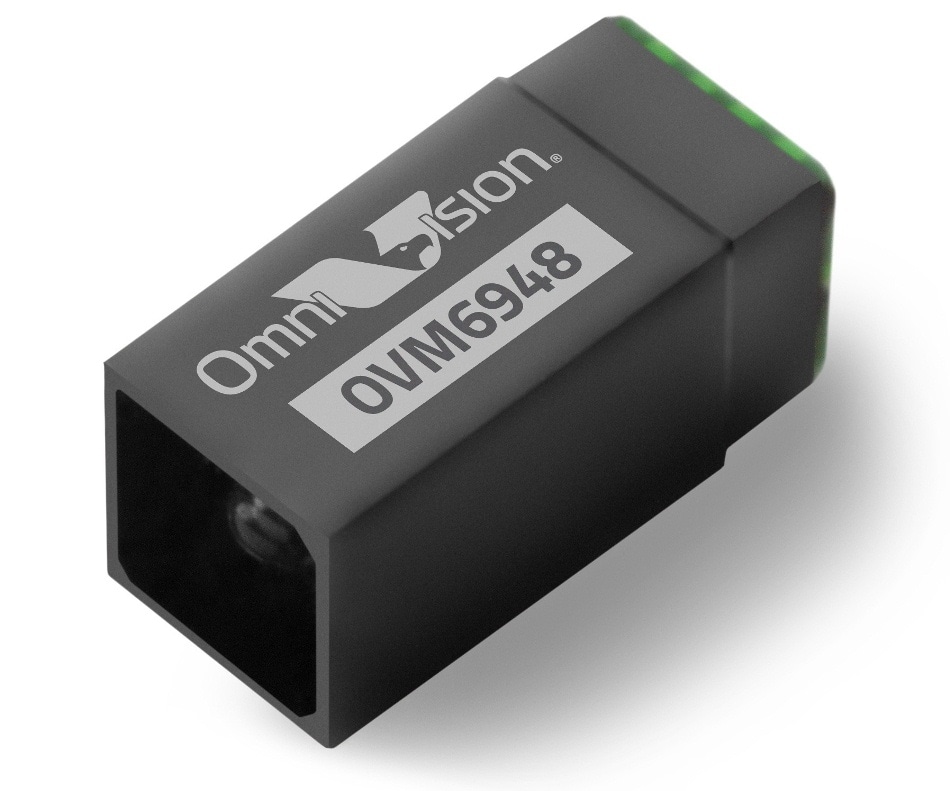OmniVision Technologies, Inc., a leading developer of advanced digital imaging solutions, today announced from MD&M Minneapolis that its OV6948 is the winner of the Guinness World Record for “The Smallest Image Sensor Commercially Available” with its size of 0.575 mm x 0.575 mm. Derived from this ultra small imager, the company also announced its OVM6948 CameraCubeChip™–a fully packaged, wafer-level camera module measuring 0.65 mm x 0.65 mm, with a z-height of just 1.158 mm.

OmniVision developed these innovative medical imagers to address the market demand for decreased invasiveness and deeper anatomical access. Additionally, these imagers can address the many challenges posed by reusable medical imaging equipment, including cross-contamination risks and inefficiencies due to high maintenance costs.
“At Yole Développement (Yole), we expect disposable endoscope shipments to grow at a 35.9% CAGR over the next five years (1),” asserted Marjorie Villien, PhD., technology and market analyst, medical and industrial imaging. “This industry is today driven by the recent recommendation from the US Food and Drug Administration (FDA) related to the cross-contamination issues due to improper cleaning of the endoscopes. In this context, all major endoscope OEMs are developing cost-effective, small-diameter disposable endoscopes with high image quality.”
(1) Source: Solid-State Medical Imaging report, Yole Développement, 2017 & 2020 upcoming edition
Utilizing a highly effective and economical wafer-level packaging technology, the OVM6948 is making the mass production of disposable medical imaging equipment possible. Additionally, this complete module can be integrated into a catheter or endoscope with a diameter as small as 1.0 mm. With this camera’s small size and high 200x200, or 40 KPixel backside-illuminated resolution, high quality images can be captured from within the body’s narrowest blood vessels for neuro, ophthalmic, ENT, cardiac, spinal, urology, gynecology and arthroscopy procedures. Additionally, many space constrained dental, veterinarian and industrial applications can also benefit from the OVM6948’s advanced design.
“Previously, procedures in the body’s smallest anatomy were performed either blind or using low quality images from fiberscopes, as existing cameras were too big and reusable endoscopes were not cost effective,” said Aaron Chiang, marketing director at OmniVision. “The OVM6948 wafer-level camera module offers a compact, high quality solution for disposable guidewires, catheters and endoscopes, which are experiencing growing demand because of their ability to reduce cross-contamination risks, downtime inefficiencies and costs associated with the repairs, preprocedural testing and sterilization of reusable endoscopes. In addition, these compact disposable medical devices can improve patient comfort and shorten recovery time.”
The OVM6948 is the only ultra small “chip on tip” camera with backside illumination, which provides excellent image quality and better low-light performance to help reduce LED heat, along with improved sensitivity. It also allows for the use of superior lens technology over competing front-side illumination cameras in this class. Additionally, this color analog camera with OmniBSI+™ technology enables easy calibration in production and is reflowable with a 4-pin interface for simplified integration, which shortens time to market while reducing costs.
Other key features of this camera module include a wide 120-degree field of view and an extended focus range of 3 mm to 30 mm. Its image array is capable of capturing 200x200 resolution images and video at up to 30 frames per second, and its analog output that can transmit over 4 meters with minimal noise. The camera also offers low power consumption of 25 mW, generating less heat for better patient comfort and flexible procedure durations.
The OVM6948 is available now for volume production in the tray format, along with an evaluation kit. Additionally, this camera module will be demonstrated at OmniVision’s booth #1248, at the MD&M Minneapolis trade show October 23-24.